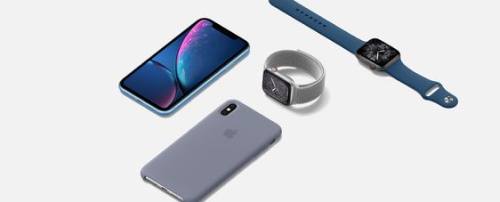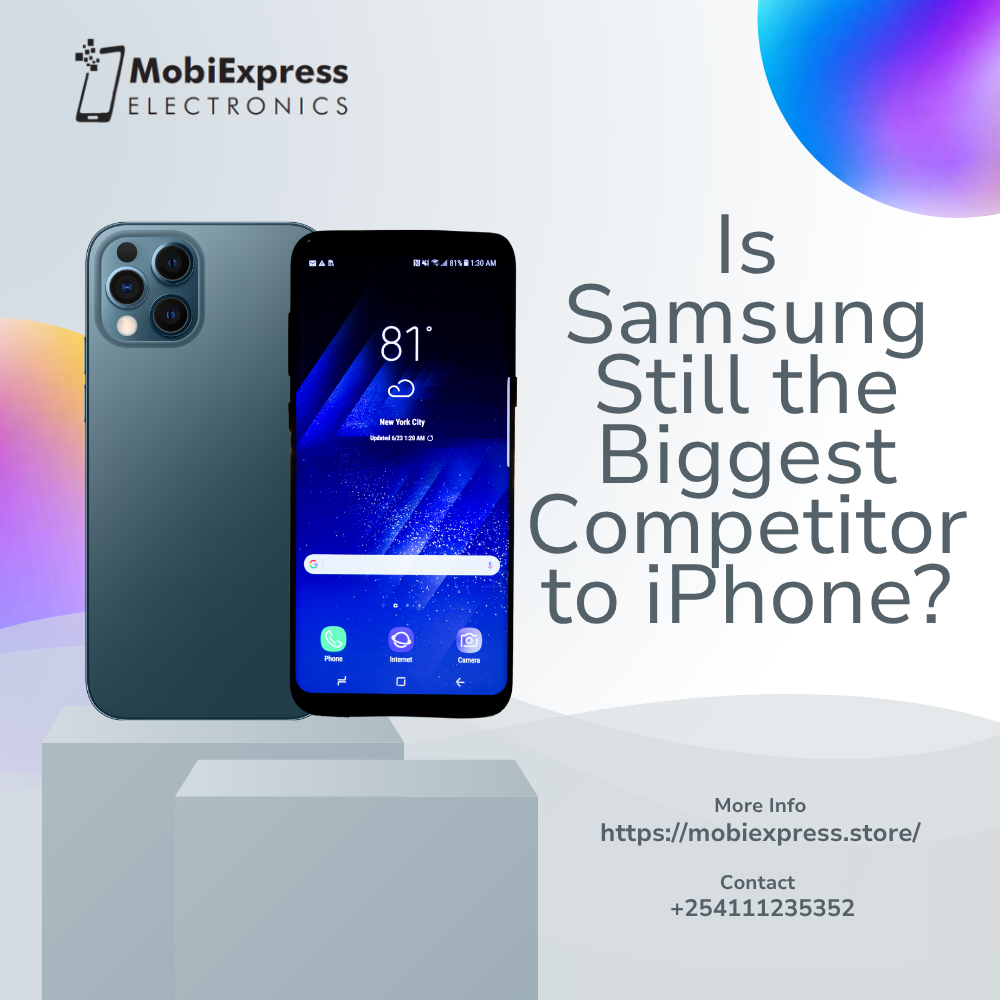For years, the smartphone market has been dominated by two giants: Apple and Samsung. Their rivalry has shaped the industry, pushing innovation, design, and performance to new heights. In Kenya, where mobile phones are central to work, communication, and entertainment, these two brands continue to compete for dominance.
But in 2025, is Samsung still the biggest competitor to iPhone? The short answer is yes — but the reasons go beyond simple brand rivalry. In this blog, we’ll explore how Samsung continues to challenge Apple, what makes them different, and why Kenyan consumers still find themselves choosing between these two.
1. Samsung’s Wide Range of Devices
One of Samsung’s biggest strengths is variety. While Apple focuses on a limited number of models each year, Samsung offers a wide lineup — from premium flagships like the Galaxy S23 Ultra and Galaxy Z Fold series to more affordable models in the Galaxy A series.
This variety appeals to different budgets and needs in Kenya. Whether you’re a student looking for a capable mid-range phone or a professional wanting the latest foldable tech, Samsung has an option.
By contrast, iPhones are almost always premium-priced, meaning Samsung can capture a broader market without compromising brand recognition.
2. Innovation and Cutting-Edge Features
Samsung has built its reputation on being a pioneer in smartphone technology. It was among the first to bring edge-to-edge displays, high refresh rates, and foldable screens to the mainstream.
The Galaxy Z Fold and Galaxy Z Flip lines, for example, have created a new category of devices, blending smartphone portability with tablet-like productivity. For Kenyan tech enthusiasts, this kind of innovation keeps Samsung exciting and competitive against Apple’s more incremental yearly upgrades.
3. The Camera Rivalry
When it comes to smartphone cameras, both Samsung and Apple are leaders — but they approach it differently. Samsung often focuses on high megapixel counts, zoom capabilities, and AI-powered photo enhancements. The Galaxy S23 Ultra, for instance, features a 200MP main sensor and up to 100x digital zoom.
Apple, on the other hand, leans on colour accuracy, consistency, and natural-looking photos. The iPhone 14 Pro’s 48MP sensor delivers realistic images with a more balanced tone.
For Kenyan photographers, influencers, and vloggers, the choice often comes down to style — Samsung for versatility and zoom power, iPhone for cinematic realism.
4. Performance and Software Experience
Apple’s iPhones run on iOS, known for its stability, optimisation, and long-term updates. Samsung devices use Android with One UI, which offers customisation and flexibility.
In Kenya, iPhones tend to appeal to those who want a straightforward, consistent experience, while Samsung’s Android ecosystem attracts users who value choice, customisation, and advanced features like split-screen multitasking.
Performance-wise, Samsung’s flagship devices rival or even surpass iPhones in raw hardware specs, though iPhones often lead in software efficiency.
5. Ecosystem and Compatibility
Apple’s ecosystem is famous for how seamlessly its devices work together — from iPhones to MacBooks, iPads, and Apple Watch. This is a strong pull for Kenyan professionals and creatives who already own Apple devices.
Samsung, however, has been catching up. Its Galaxy ecosystem, including Galaxy Buds, Galaxy Watch, and tablets, now integrates smoothly with its phones. Samsung also collaborates with Microsoft, making it easier to link devices with Windows PCs — a useful feature for many Kenyan offices.
6. Brand Loyalty and Resale Value
In Kenya, iPhones generally have higher resale value due to strong demand in the second-hand market. Apple users also tend to stick with iPhones for years, upgrading only when necessary.
Samsung, however, benefits from attracting new customers across all price ranges and offering fresh technology first. This constant innovation helps maintain strong brand loyalty, especially among Android users.
7. The Kenyan Perspective
In Kenya, the choice between Samsung and iPhone often comes down to lifestyle, profession, and budget.
-
iPhone users often value longevity, brand prestige, and the smooth iOS experience.
-
Samsung users appreciate variety, customisation, and cutting-edge tech.
Both brands have strong support networks in Kenya, but buying from reliable sources is key to avoiding counterfeit or grey-market devices.
8. Why Mobi Express Store Is the Safe Choice
Whether you choose Samsung or iPhone, purchasing from a trusted source matters. Mobi Express Store is a well-known online store in Kenya that specialises in genuine smartphones and accessories.
When you order from Mobi Express Store, you get:
-
100% authentic devices (Samsung, Apple, and more)
-
Nationwide delivery
-
Expert product advice to help you choose the right model
-
A range of cases, chargers, and accessories for both Samsung and iPhone
This is especially important for flagship devices, where quality and warranty can make a big difference.
9. Final Verdict
So, is Samsung still the biggest competitor to iPhone in 2025? Absolutely. Its combination of variety, innovation, and performance keeps it on equal footing with Apple. In Kenya, the rivalry remains alive because both brands excel in different areas — and Kenyan consumers know how to choose based on what suits them best.
If you’re in the market for a new phone, whether it’s the latest iPhone or Samsung flagship, Mobi Express Store offers a safe and convenient way to shop online for genuine products. In a market full of options, the Apple–Samsungs rivalry ensures we keep getting better phones every year — and that’s a win for everyone.
Frequently Ask Questions
1. Is Samsung still competing strongly with iPhone in 2025?
Yes. Samsung continues to rival iPhone with innovative designs, powerful hardware, and a wide variety of devices for all budgets.
2. Which is better for photography, Samsungs or iPhone?
Samsung offers higher megapixel counts and zoom, while iPhone delivers natural, balanced colours. The choice depends on your photography style.
3. Are Samsung phones good for Kenyan mobile networks?
Yes. Samsung devices support Safaricom, Airtel, and Telkom, and many models also feature dual SIM or eSIM options.
4. Which brand offers better software updates in Kenya?
Apple iPhones typically receive updates for 5–6 years, while Samsung now provides up to 4–5 years of updates on flagship and select mid-range devices.
5. Is Samsung cheaper than iPhone in Kenya?
Samsung offers phones across many price ranges, making it easier to find an option that fits your budget compared to Apple’s premium pricing.
6. Where can I buy genuine Samsung and iPhone models in Kenya?
You can purchase from Mobi Express Store, a trusted online shop offering authentic devices and nationwide delivery.


